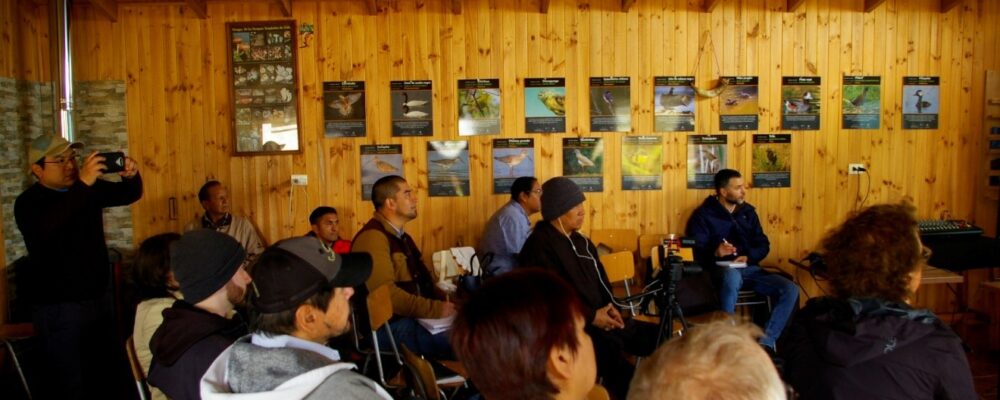Most popular

Mobilizing Indigenous Knowledge in the Context of Play: Collaborative Research with Innu in Quebec and Mãori in New Zealand
Elisabeth Jacob

Studies of cultural safety practices developed jointly with educational stakeholders north of the 49th parallel, to promote school perseverance and educational success of Indigenous students.
Christine Couture

The Indigenous Knowledge and Education Partnership Project (IKEPP)
Benoit Éthier

The Indigenous Knowledge and Education Partnership Project (IKEPP)
Benoit Éthier
June 15, 2022Co-investigators: G. Pellerin (UQAT), S. Poirier (ULaval), H. Torres (UBioBio), D. Studnicki-Gizbert (UMcGill), V. Paul (UQAT), L. Jérôme (UQÀM)
Collaborators: Council of the Atikamekw Nation (Canada), Atikamekw Council of Manawan (Canada), Associacion Anultuwe Zugu (Chile), Congreso Ngäbe y Buglé del Norte de Santa Fe (Panama), Comunidad Mapuche Lof Boyen Mapu (Chile), Nuvviti School (Canada), Kativik Ilisarniliriniq (Canada), Simon P. Ottawa School (Canada), Escuela Enzo Ferrari (Chile), Ikaarvik School (Canada), UQAT (Canada), UBio-Bio (Chile).
Project Title and Summary
Following the example of the UN Declaration on the Rights of Indigenous Peoples (UN 2007), which recognizes the right of Indigenous peoples to develop and control their school networks and institutions, several public commissions (CRPA 1996; CRV 2015) and government action plans (SAA 2017; AFNQL 2020) highlight the need to review the curricula of community schools based on Indigenous epistemological approaches. In response to these calls for action, brings together researchers and members of Indigenous organizations to develop innovative educational approaches and programs rooted in the needs and realities of Indigenous communities.
Six Aboriginal nations are involved in the IKEPP project: 1) Atikamekw Nehirowisiwok (Canada); 2) Inuit of Nunavik, Canada; (3) Mapuche of Chile; (4) Ngäbe-Buglés of Comarca (Panama); Maya (Mexico); Nahuatl (Mexico) and Puré Péchen (Mexico).
The strength, originality, and major contribution of the IKEPP project is to develop a partnership bringing together Indigenous organizations and schools, as well as researchers working in various national contexts, around the same issue of the enhancement and development of Indigenous pedagogical approaches and content. The partnership will allow the sharing of expertise and experience of Indigenous professionals rooted in their community and of university researchers from different academic specialties (anthropology, educational sciences, history, religious studies). This sharing of expertise will promote the co-creation of new educational tools, approaches and programs that will benefit the elementary schools of the 4 Indigenous nations and, more broadly, public decision-makers and educational institutions (ministries, school service centres, schools), and regional and national institutions (Quebec, Nunavik, Panama, Chile). By developing such a network, the IKEPP project contributes to 1) the innovative co-production of knowledge in humanities and social sciences; 2) the co-production of highly original and creative Indigenous pedagogical tools and approaches; 3) the training and mobilization of research around crucial issues concerning education, decolonization and academic success of Indigenous youth.
Project Objectives
The main objective of the project is to develop an international partnership bringing together researchers and members of Indigenous organizations working to promote, produce, share, and use Indigenous knowledge in school curricula and in educational approaches inside educational institutions of Indigenous communities. The general aim of the project responds: (a) to the effort of identity affirmation and revitalization of culture and language within several Aboriginal nations; (b) calls for action from public commissions that stress the need to develop Indigenous educational programmes that mobilize Indigenous knowledge and pedagogical approaches with a view to promote school perseverance and identity affirmation; (c) needs identified by Indigenous communities to develop international partnerships aimed at sharing their initiatives and developing new educational approaches and tools adapted to their reality; (d) steps to self-determination of Indigenous Peoples, including education and the transmission of cultural knowledge.
Results (if applicable)
International meetings:
June 15-17, 2022 (virtual meeting)
21-27 October 2022 (Chile)
Publications:
Colloquium proceedings Let’s forge links between territories and peoples
Summary of the meeting in Chile (upcoming)
2 thematic publications (upcoming)